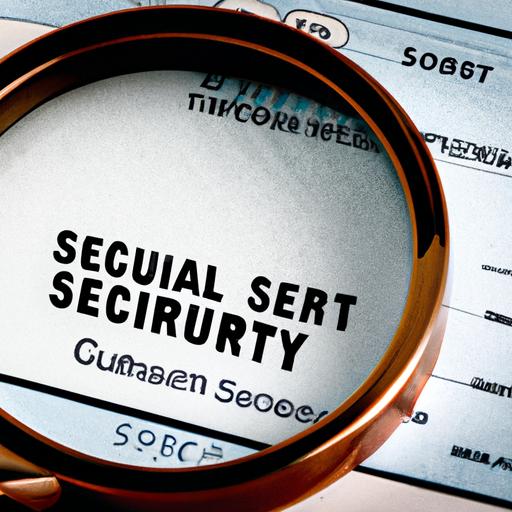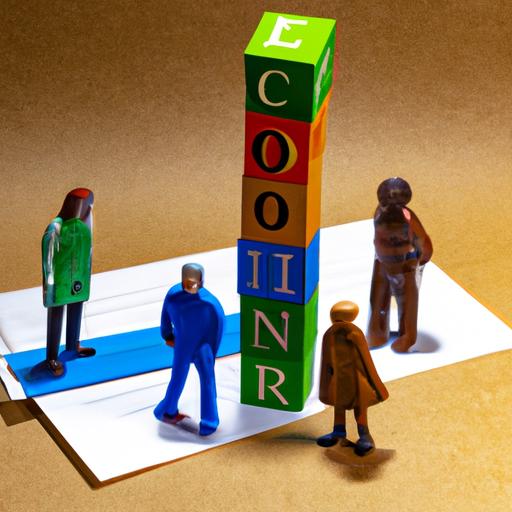Have you ever stumbled upon a social security number and wondered who it belongs to? The need to identify the owner of a social security number (SSN) arises more often than we realize. Whether you found it on an old document or suspect fraudulent activity, uncovering the mystery behind “whose social security number is this” can be both necessary and crucial.
A. Understanding the need for identifying the owner of a social security number
In today’s digital age, where identity theft and fraud have become all too common, it’s essential to have the tools to protect ourselves and our loved ones. Knowing the owner of a social security number can help prevent potential harm or illegal activities associated with that number. It allows us to verify identities, confirm legitimacy, and safeguard against potential risks.
B. Importance of conducting a search for “whose social security number is this”
Imagine finding a forgotten SSN tucked away in an old family album or stumbling upon it while cleaning out a deceased relative’s belongings. Curiosity strikes, and you can’t help but wonder who this number belongs to and what stories it holds. Additionally, in situations where you suspect fraud or need to authenticate someone’s identity, conducting a search for “whose social security number is this” becomes paramount.
To embark on this quest, we need to understand what a social security number truly represents and how it intertwines with our lives. In the following sections, we will delve deeper into the intricacies of SSNs and explore the legal and ethical considerations surrounding the search for their rightful owners. So, let’s unlock the secrets and embark on this journey together.
What is a Social Security Number (SSN)?
A. Definition and purpose of SSN
A Social Security Number (SSN) is a unique nine-digit identifier assigned to individuals in the United States by the Social Security Administration (SSA). Introduced in 1936, the primary purpose of an SSN was to track an individual’s earnings and determine their eligibility for Social Security benefits.
However, over time, the significance of SSNs has expanded beyond their original intent. Today, SSNs are widely used as a means of identification and authentication in various sectors, including financial institutions, healthcare providers, educational institutions, and government agencies. They have become essential in establishing an individual’s identity, facilitating transactions, and ensuring the integrity of records.
B. How SSNs are assigned to individuals in the United States
The process of assigning SSNs involves the SSA following a systematic approach. When a child is born, they are typically assigned an SSN shortly after birth, either through the hospital or by applying directly with the SSA. In other cases, individuals may obtain an SSN when they become eligible for employment or need one for specific activities such as filing taxes.
SSNs are unique to each individual and follow a specific pattern. The first three digits, known as the Area Number, represent the geographical region where the SSN was issued. The following two digits, known as the Group Number, have no specific meaning and were initially intended for administrative purposes. Lastly, the final four digits, known as the Serial Number, are assigned sequentially and differentiate individuals within a specific group and area.
C. Role of SSN in various sectors
The SSN plays a vital role in numerous sectors, serving as a reliable identifier and helping streamline processes. In the financial sector, SSNs are used for credit checks, opening bank accounts, applying for loans, and detecting fraudulent activities. In healthcare, SSNs are often used to verify patient identities, maintain accurate medical records, and process insurance claims. Additionally, educational institutions rely on SSNs for student identification, financial aid, and official record-keeping.
As SSNs hold immense value and are interconnected with various aspects of our lives, it becomes crucial to understand the importance of protecting this sensitive information. In the upcoming sections, we will explore why individuals might search for “Whose Social Security Number is This” and the legal ways to conduct such searches while ensuring privacy and compliance. Let’s continue our journey of unraveling the secrets behind SSNs.
Why would someone search for “Whose Social Security Number is This”?
Intriguing as it sounds, there are several instances where individuals find themselves in need of identifying the owner of a social security number (SSN). Let’s explore some scenarios where such searches become crucial.
A. Instances when individuals might need to identify the owner of a SSN
-
Identity Verification: When hiring new employees or conducting background checks, employers may need to verify the authenticity of an applicant’s SSN. This ensures the individual’s qualifications and credibility, fostering a safe and trustworthy work environment.
-
Preventing Identity Theft: If you receive suspicious mail or emails claiming to be from financial institutions or government agencies, it is essential to verify the sender’s identity. By searching for “whose social security number is this,” you can validate the legitimacy of the communication and protect yourself from potential identity theft.
-
Inheritance and Estate Planning: During the process of settling an estate or distributing inheritance, identifying the rightful beneficiaries becomes crucial. Conducting an SSN search helps confirm the individuals entitled to the assets and ensures a fair and legal distribution.
B. Legal and ethical considerations in conducting such searches
While the urge to uncover the owner of a social security number may be strong, it is important to approach these searches with caution and adhere to legal and ethical considerations.
-
Privacy Concerns: The privacy of individuals is of utmost importance. It is crucial to respect privacy laws and ensure that the search is conducted within the boundaries of legality and consent. Always obtain the necessary permissions or utilize authorized channels to access SSN information.
-
Legal Compliance: Different jurisdictions have varying regulations regarding SSN searches. Familiarize yourself with the laws and guidelines governing your location to avoid any legal repercussions. Consulting legal professionals or utilizing trusted services can help ensure compliance and protect your interests.
As we move forward, we will explore the various legitimate ways to perform SSN searches while maintaining privacy, legality, and ethical standards. Remember, the quest to uncover “whose social security number is this” must always be undertaken responsibly and with the utmost respect for others’ privacy.
Risks and Considerations
As we embark on the journey of uncovering “whose social security number is this,” it is crucial to understand the risks and considerations involved in conducting SSN searches. While the desire to reveal the owner of a SSN may be genuine, we must navigate this process responsibly and ethically. Let’s explore the potential risks and important factors to consider along the way.
A. Privacy concerns associated with searching for someone’s SSN
Respecting privacy is of utmost importance when delving into someone’s personal information. Conducting a search for “whose social security number is this” may involve accessing sensitive data, raising concerns about privacy infringement. It is imperative to ensure that the information obtained is used solely for legitimate purposes and that the privacy rights of individuals are respected throughout the process.
B. Potential legal implications and restrictions
The legality surrounding SSN searches must not be overlooked. While the desire to uncover the owner’s identity is understandable, it is vital to comply with legal regulations and restrictions. Laws regarding SSN searches vary across jurisdictions, and it is essential to familiarize oneself with the specific regulations in your region to avoid any legal implications.
C. Ensuring compliance with regulations while conducting SSN searches
To navigate the SSN search process safely, it is advisable to rely on reputable and authorized sources. Government resources often provide avenues for SSN verification, ensuring compliance with legal requirements. Online databases, while convenient, may have limitations and may not always provide accurate or up-to-date information. In some cases, seeking professional services that specialize in SSN search assistance can offer expertise and guidance while adhering to legal regulations.
As we proceed with the search for “whose social security number is this,” let us remember to prioritize privacy, respect legal boundaries, and comply with regulations to ensure a responsible and lawful exploration of the SSN’s rightful owner. By doing so, we can protect both our own interests and the privacy of others, fostering a secure and trustworthy environment.



